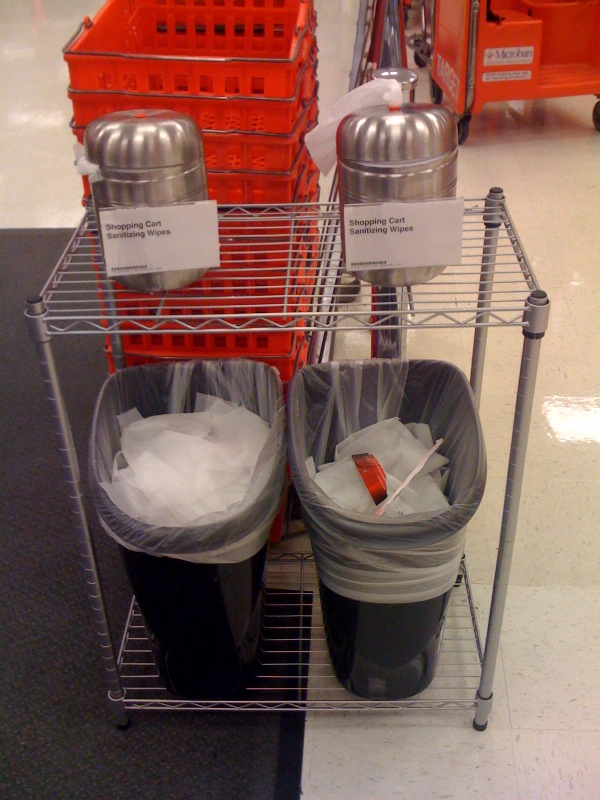I get called regularly by some journalist wanting to stick it to the man – to show the shoddy side of the food business. And what better place than some local café.
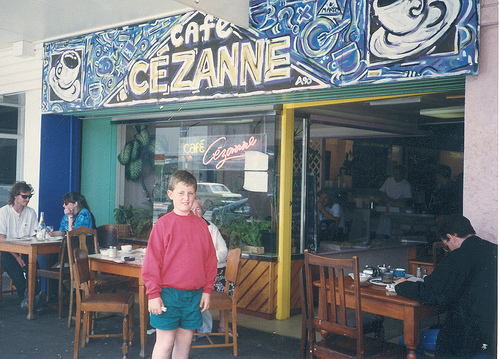 I advise caution and getting the story right – journalistic basics which have substantially declined over the past 20 years, especially at the local level.
I advise caution and getting the story right – journalistic basics which have substantially declined over the past 20 years, especially at the local level.
On June 16, 2009, New Zealand’s TV3 consumer affairs program, Target, showed an undercover camera segment looking at the hygiene standards of several Auckland cafes.
The New Zealand Herald explains food was bought from the cafes and then samples sent for laboratory testing, one of which came back with a high reading of fecal coliform. The show attributed that sample to Ponsonby-based Cafe Cezanne.
Target wrote to Cafe Cezanne’s owners telling them a chicken sandwich from their cafe had tested positive for faecal coliforms. However, the letter contained incorrect information about the date of purchase.
The owners questioned whether the sample was from their cafe but Target went ahead with the broadcast.
The program was forced to apologize the following week after it found a mistake had been made in labeling the samples, and the show broadcast a statement saying: "Due to a human error by a former Target staff member coding the results, we cannot confirm which cafe produced this high fecal coliform count".
 Cafe Cezanne complained to the Broadcasting Standards Authority (BSA) that the original item and the apology were inaccurate and unfair. They said the apology had not stated that the sample had been wrongly attributed to Cafe Cezanne.
Cafe Cezanne complained to the Broadcasting Standards Authority (BSA) that the original item and the apology were inaccurate and unfair. They said the apology had not stated that the sample had been wrongly attributed to Cafe Cezanne.
In a decision released today, the BSA said it had found Target was in possession of two documents, which unequivocally exonerated the cafe, before the apology.
The documents showed the contaminated sample was collected and delivered to the laboratory on a different day from the sample from Cafe Cezanne, and it was therefore clear the contaminated sample definitely did not come from Cafe Cezanne.
That, uh, oversight resulted in almost $40,000 in fines.
TV3 broadcaster TVWorks was fined $5000 for the incorrect allegation and another $5000 for the apology, which it said did not unequivocally clear the cafe.
It was also ordered to pay the cafe owners’ full legal costs of $28,068.75, and to broadcast an apology and summary of the BSA’s decision on Target.
As well, it must publicize the decision on radio stations and in a newspaper advertisement.




 Tonight’s challenge was to cook a meal for 100 employees in a closed Target super store in the middle of the night. Because of the improvised cooking setting, the chefs were forced to set up their kitchens, find their ingredients, and prepare to serve the employees and judges within a 3 hour time limit. Some concentrated on table linens, some on flavors, but there was a frightening absence of handwashing. Granted, many of the chefs opted to make soup, which in theory should allow for thorough cooking of all ingredients. But what about any fancy garnish and fresh salad that ends up on the plate?
Tonight’s challenge was to cook a meal for 100 employees in a closed Target super store in the middle of the night. Because of the improvised cooking setting, the chefs were forced to set up their kitchens, find their ingredients, and prepare to serve the employees and judges within a 3 hour time limit. Some concentrated on table linens, some on flavors, but there was a frightening absence of handwashing. Granted, many of the chefs opted to make soup, which in theory should allow for thorough cooking of all ingredients. But what about any fancy garnish and fresh salad that ends up on the plate?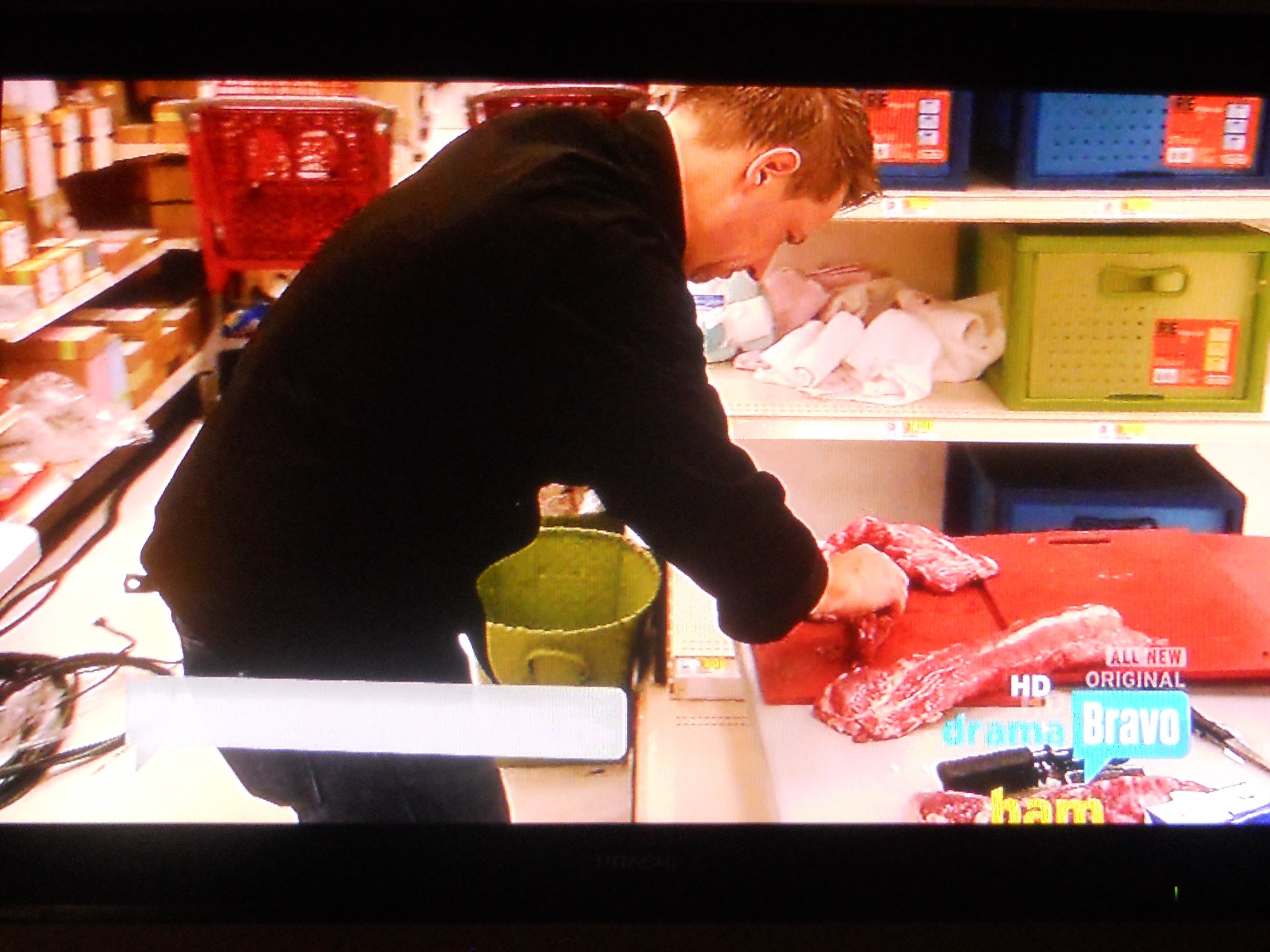 He then topped his finished pork with some freshly sliced apple and green chili slaw before serving. His concern? "It’s not the prettiest dish in the world. I know that. But I’m ready to defend my dish if I have to. I think it’s tasty."
He then topped his finished pork with some freshly sliced apple and green chili slaw before serving. His concern? "It’s not the prettiest dish in the world. I know that. But I’m ready to defend my dish if I have to. I think it’s tasty."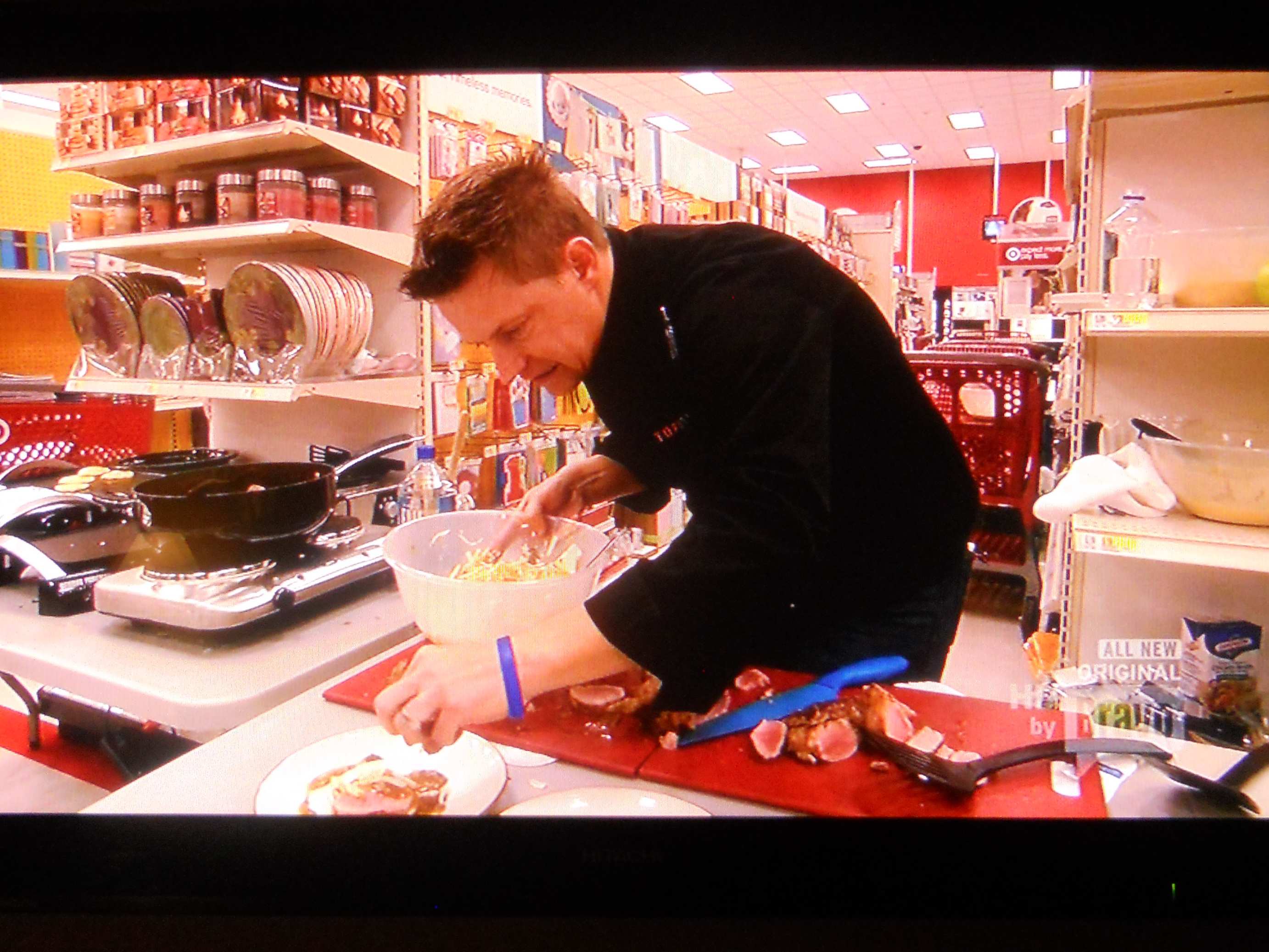
 I advise caution and getting the story right – journalistic basics which have substantially declined over the past 20 years, especially at the local level.
I advise caution and getting the story right – journalistic basics which have substantially declined over the past 20 years, especially at the local level. Cafe Cezanne complained to the Broadcasting Standards Authority (BSA) that the original item and the apology were inaccurate and unfair. They said the apology had not stated that the sample had been wrongly attributed to Cafe Cezanne.
Cafe Cezanne complained to the Broadcasting Standards Authority (BSA) that the original item and the apology were inaccurate and unfair. They said the apology had not stated that the sample had been wrongly attributed to Cafe Cezanne.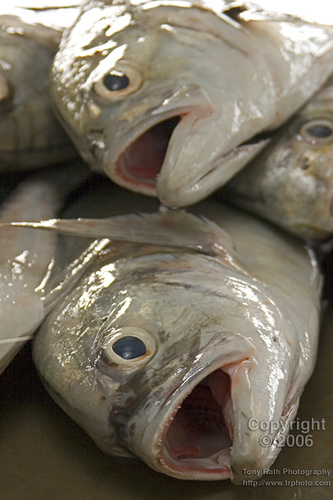 Of course it does, we’re at least 20 hours from any major body of water.
Of course it does, we’re at least 20 hours from any major body of water.
 When she was strong and co-ordinated enough to sit on her with a seatbelt on the seat behind the handle, a battle of wills soon emerged as Sorenne would have her hands on the handle, then in her mouth, or worse, would try to suckle the handle.
When she was strong and co-ordinated enough to sit on her with a seatbelt on the seat behind the handle, a battle of wills soon emerged as Sorenne would have her hands on the handle, then in her mouth, or worse, would try to suckle the handle.  Last year, USA Today reported
Last year, USA Today reported